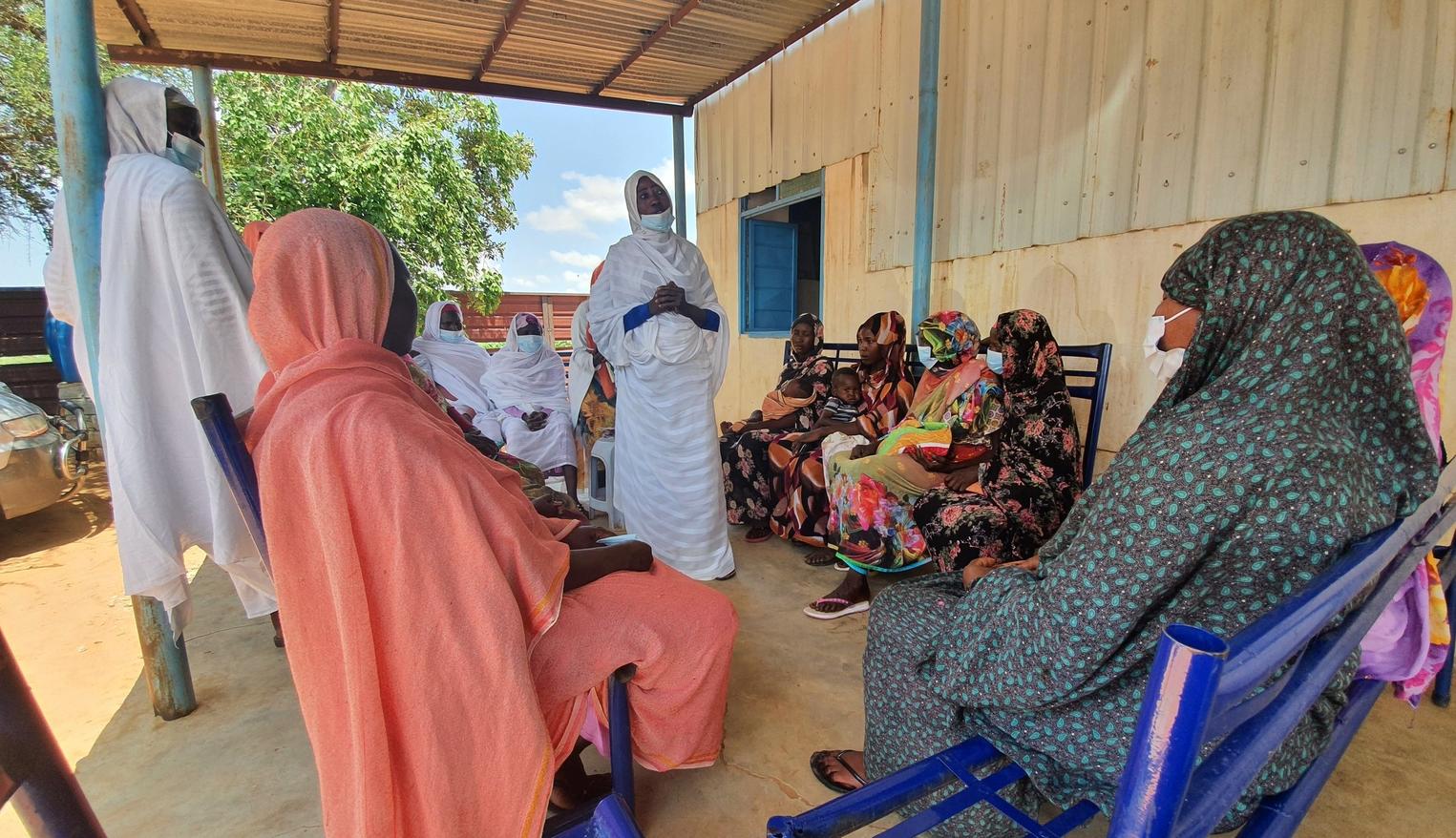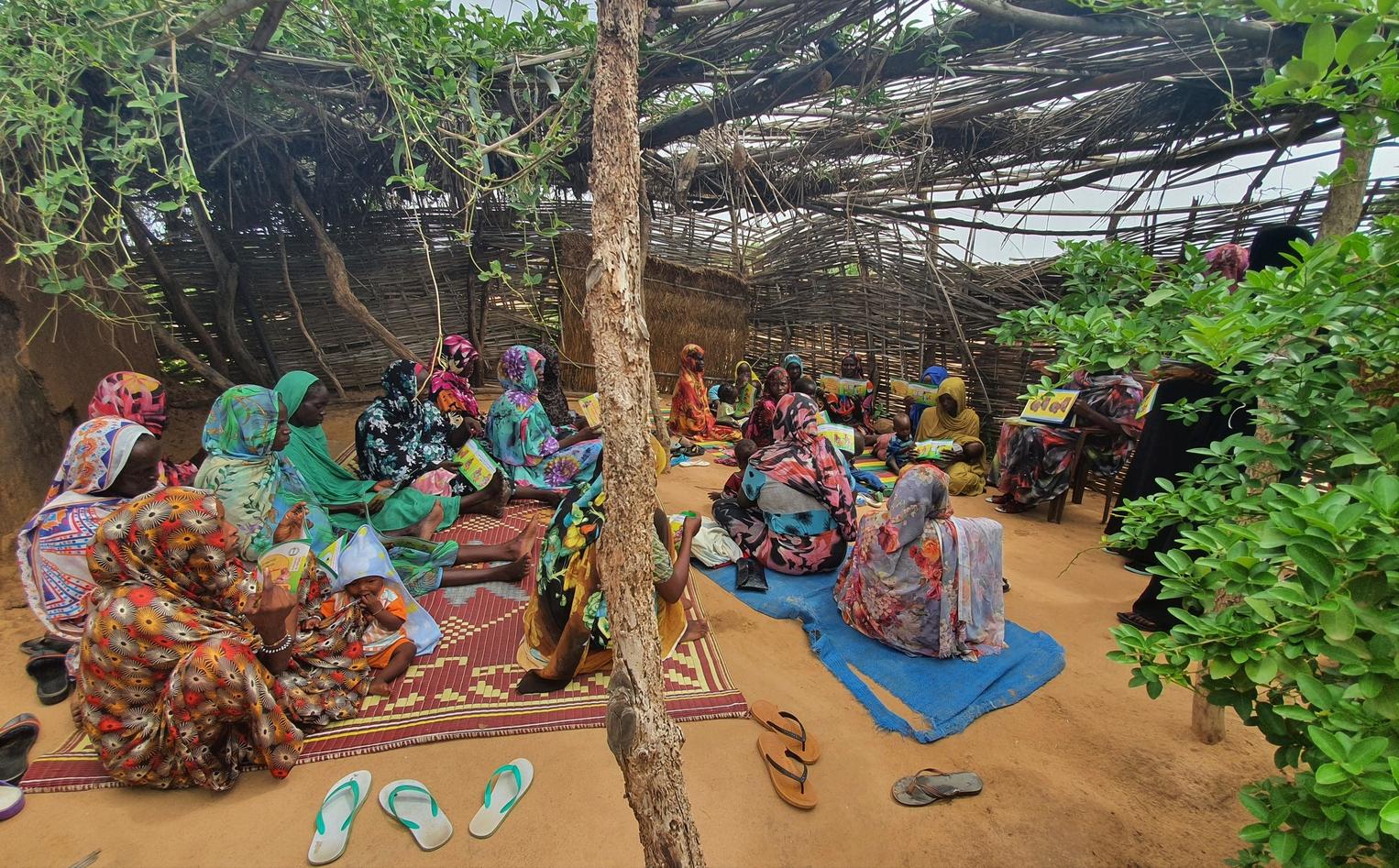Request support on coordination, information management, integration for nutrition outcomes or technical nutrition in emergencies assistance.
التماس الدعم لتنسيق التغذية وإدارة المعلومات والتغذية في حالات الطوارئ
Demander un appui pour la coordination de la nutrition, la gestion de l'information et la nutrition dans les situations d'urgence
Buscar apoyo para la coordinación de la nutrición, la gestión de la información y la nutrición en situaciones de emergencia
Solicite apoio para coordenação em nutrição, gestão de informação e nutrição em emergências
Decades of instability and conflict have created a prolonged humanitarian crisis in Sudan. It is estimated that 14.3 million people will need humanitarian assistance in 2022, a number higher than any other in the past decade. Nearly 64% of people will require emergency assistance for life-threatening needs related to critical physical and mental well-being including food security and nutrition. 1.6 million are refugees and asylum seekers from surrounding countries who have fled to Sudan seeking refuge. 7.8 million are children and 57% are women and girls.
Malnutrition rates are high among children under five years and pregnant and breastfeeding women, with several contributing factors – including increased and protracted displacement, economic decline and inflation, conflict, displacement, poverty, poor water and sanitation (WASH), limited access to health services, and poor dietary diversity, and high food price hikes which are even worse during the lean season. Annual floods and frequent disease outbreaks further complicate matters and threaten health and livelihoods.
Additionally, Gender Based Violence (GBV), which is deeply interrelated to malnutrition and higher levels of both acute and chronic malnutrition for women and girls, remains a critical concern in Sudan. The dire economic situation has increased violence against women, girls, and gender minorities and has increased forced marriage, early marriage, and Female Genital Mutilation (FGM) in particular. GBV is often not reported in Sudan as women, girls, gender minorities and their families who are vulnerable to repeated violence, sexual and verbal abuse are commonly blamed, preventing GBV survivors from accessing services and support.

Strengthening the collective nutrition response
As of 2021, many strategies to improve infant and young child feeding (IYCF) had been adopted at both the national and community levels, but technical support was still needed to strengthen the overall nutrition response. There was a real need to further develop infant and young child feeding in emergencies (IYCF-E) guidelines, establish formal processes for monitoring breastmilk substitutes (BMS), and better integrate IYCF-E into other sectors’ responses.
Therefore, the Nutrition Sector Coordinator in Sudan reached out to the GNC Technical Alliance for technical support. In response, Brooke Bauer, the Alliance’s MIIYCN-E and Gender Advisor, was deployed to Khartoum to provide technical support to the IYCF Technical Working Group and IYCF-E Taskforce and strengthen IYCF-E service delivery.
This support included:
- Guiding the IYCF Working Group and IYCF-E Taskforce in reviewing and adapting their existing IYCF strategy and action plan to include emergencies and creating an IYCF-E Operational Guidance.
- Helping the IYCF Technical Working Group (TWG) / IYCF-E Taskforce (TF) to develop IYCF-E national guidelines, which provided practical guidance on how to design, plan, implement and monitor an IYCF-E response in Sudan.
- Developing monitoring and evaluation systems and tools to monitor the application of the IYCF-E national guidelines and ensure quality and consistency and assist in gathering learnings.
- Providing leadership and guidance around the prevention and appropriate handling of donated BMS, milk products, bottles, and teats.
- Delivering a training session on IYCF-E Multi-sectoral Integration to partners
- Providing recommendations and sensitization training on integrating IYCF-E into nurturing care interventions to improve children’s overall early childhood development compared to a single-sector approach.

Moving forward, better equipped, and prepared
Working together with nutrition partners and lead by the expertise of the nutrition partners and IYCF-E task force, Brooke was able to support the strengthening of the good work being done across the nutrition space in Sudan.
A comprehensive IYCF-E Operational Guidance was developed thanks to a high level of input and involvement from partners. Additionally, the valuable input and feedback received from sector coordinators in Education, CCCM, Protection, and WASH also helped to create a Multi-sector Guidance Note to better integrate nutrition across other sectors.
With support from UNICEF and the IYCF Working Group, a breastmilk substitute standard operating procedure (BMS SOP) was developed to ensure targeted and specific support for non-breastfed infants, including a M&E system. As in-country partners implement this system some gaps remain especially regarding under six months assessments and needs identification and an additional action plan was developed to support the implementation of the BMS SOP.
As the plans are implemented the GNC Technical Alliance team and Brooke remain available to provide support will likely be needed in the future as the IYCF-E Operational Guidance and BMS SOPs are rolled out across all regions and orientation sessions for partners get underway.
Do you need technical nutrition support and assistance in your country?
Our Technical Support Team of nutrition advisors and experts are ready to answer your questions and support you in-country or remotely.
Get in touch with us
